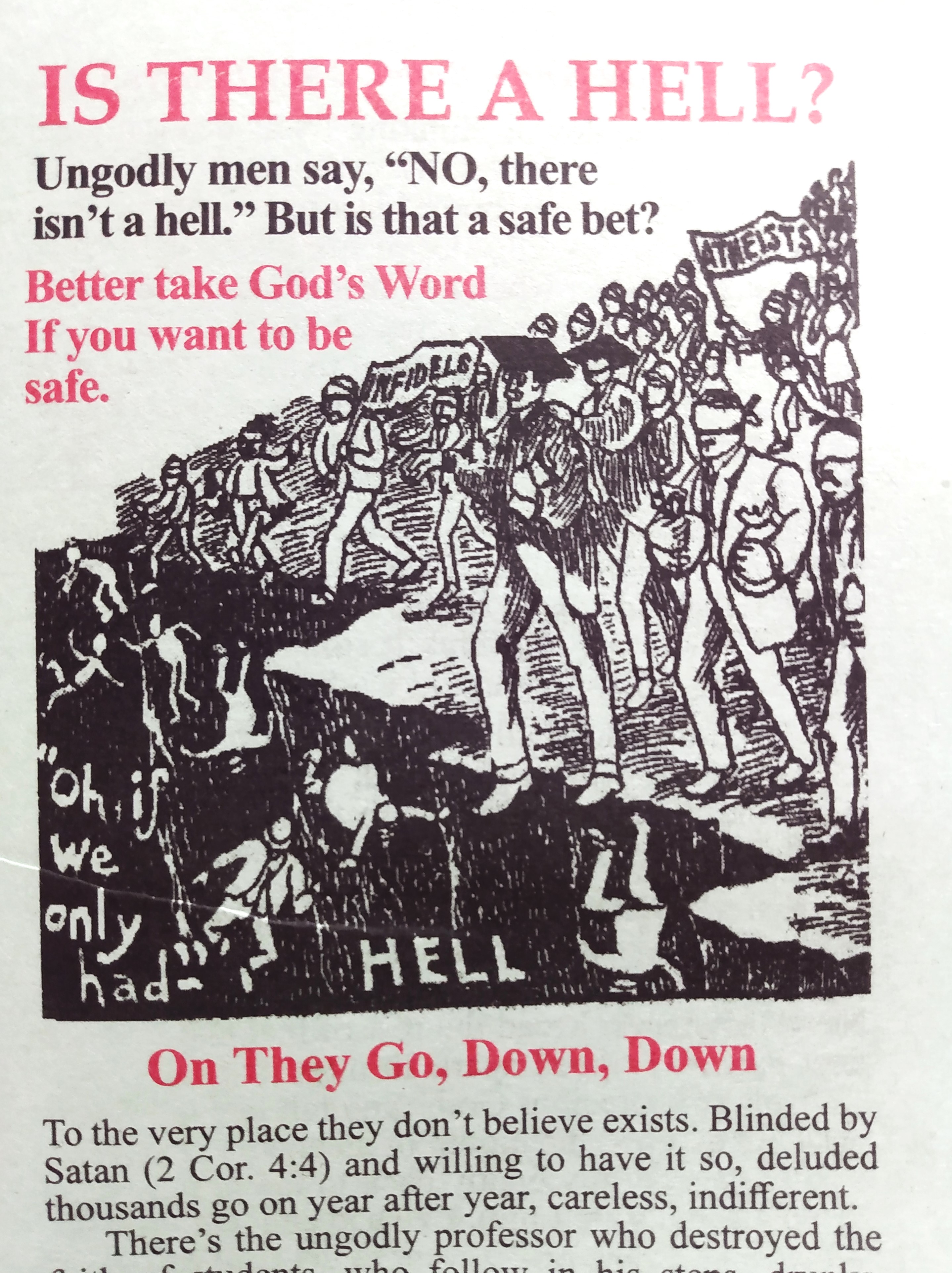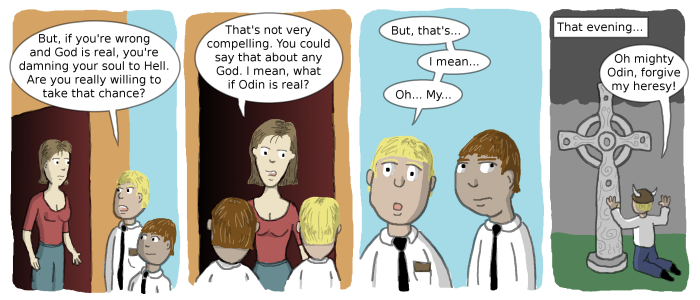
Pascal's Wager
Blaise Pascal (June 19, 1623 - August 17, 1662) was a French mathematician. His mother died when he was three, and he was raised by his father. In 1654, he became a Christian. He died of cancer at the age of 39.
 "Pascal's Wager" is as follows:
"Pascal's Wager" is as follows:
(a) If God (Biblegod, that is) actually exists, then
(i) whoever believes in him will spend eternity in heaven and
(ii) whoever doesn't believe in him will spend eternity in hell.
Whether or not people believe in him/follow his rules is very important.
(b) If God doesn't exist, then whether or not people believe in him doesn't matter very much. The worst that's happening is that Christians are going around living good, clean, honest lives, and they die with a happy (but false) hope in their hearts; thereafter they simply rot in the grave, just like the non-believers.
A diagram of the possibilities looks like this:
| ... AND YOU BELIEVE that God exists, and you follow him and obey him ... | ... AND YOU DON'T BELIEVE that God exists, and you reject him ... | |
| 1. GOD EXISTS | You end up in heaven (forever). | You end up in hell (forever). |
| 2. GOD DOES NOT EXIST | No harm done. | No harm done. |
In other words, from a practical point of view, your best bet is to become a Christian just in case Christianity is valid. "You have everything to gain, and nothing to lose."
What is wrong with this argument?
1. It makes the false assumption that there is only one possible true religion, i.e., Christianity. The "wager" implies that either
---(1) Christianity is valid or
---(2) there is nothing supernatural, no afterlife, and no (true) religious system at all.
In other words, it assumes that THERE ARE ONLY TWO POSSIBILITIES.
The philosophers call this a false dichotomy. As in, "Are you going to stay in college and waste your life, or do you want to start your future TODAY with the Texas Truck Driving Academy?"
Isn't there a THIRD possibility ... that some OTHER religious system is valid? Islam? Wicca? Buddhism?
There's a rather frightening possibility not contemplated by Pascal's Wager: that accepting Christianity and following Jesus all your life could have HORRENDOUS consequences. The devout Christian dies, goes to stand before the Judgment Throne, and sitting upon the throne is ... ALLAH !!! Allah says, "Guess what? I'm the real deal, not Jesus, not Yahweh. Satan, please escort this misguided fellow down to the hot place."
2. You DO have a lot to lose by following a false religion (that is, Christianity, if it's a false religion) — even if the actual truth is that there is NO valid religion (that is, if there isn't some alternative TRUE religion that you're offending by following Christianity). It's a waste of 76 years of existence on earth to follow a patriarchal, mean-spirited, judgmental religion that permits slavery and treats women as second-class citizens. It restricts your personal freedom, and you get nothing in return.
3. If you do "just decide to believe" in an omniscient god, won't he know that you're faking it? In other words, the "I'll go along with it just in case" plan won't work.
Bottom line:
— It does not follow that if the atheists are wrong then the Christians are necessarily correct.
— It does not follow that if the Christians are wrong then the atheists are necessarily correct.
It may well be that the atheists are wrong and the Christians are wrong. The issue cannot validly be cast as an either/or proposition.
You proving my answer to be wrong isn't the same as you proving your answer to be correct.
The "wager" is not an honest argument for belief. It is an attempt to extort belief through fear.
And a watch has something in common with your God: They're both man-made.
* Here's a video that explains Pascal's Wager better than I ever could.


|

|